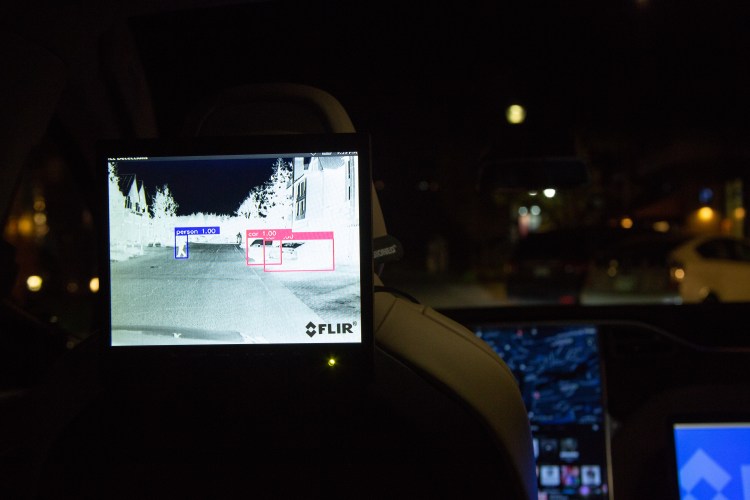Watch all the Transform 2020 sessions on-demand here.
Oregon-based Flir Systems, one of the largest producers of thermal imaging cameras and sensors in the world, today announced it will release a free, open source dataset of 10,000 infrared light images to jump-start development of autonomous car systems.
Thermal cameras can augment the sensors already installed on self-driving cars, Flir claims, adding redundancy and improving safety.
“Recent high-profile autonomous driving-related accidents show a clear need for affordable, intelligent thermal sensors,” Flir executive Frank Pennisi said in a statement. “This … dataset is a subset of what Flir has to offer, and it provides a critical opportunity for the automotive community to expand the dataset to make … self-driving cars more capable in various conditions.”
Flir said the dataset is the first of its kind, and that systems trained with it can detect objects up to 250 meters away, or 4 times the distance of typical headlights. The dataset contains both daytime and nighttime footage in fog, smoke, haze, sun glare, and other difficult lighting conditions. And objects of interests — including pedestrians, animals, bicycles, and other vehicles — have been helpfully annotated.
June 5th: The AI Audit in NYC
Join us next week in NYC to engage with top executive leaders, delving into strategies for auditing AI models to ensure fairness, optimal performance, and ethical compliance across diverse organizations. Secure your attendance for this exclusive invite-only event.
“With the potential for millions of autonomous-enabled vehicles, Flir thermal sensor costs will decrease significantly, which will encourage wide-scale adoption and ultimately enable safer autonomous vehicles,” Pennisi said.
It’s not the first foray into autonomous car technologies for the 40-year-old company. In September 2017, Flir announced a VGA sensor designed for self-driving cars, and more than 500,000 of its thermal sensors are built into the driver warning systems from General Motors, BMW, Audi, Mercedes-Benz, and Volkswagen. It also offers a software developer kit — the Autonomous Driving Kit (ADK) — with tools to build and train the sort of neural networks used in collision avoidance systems.
It’s a nascent market, but Flir already has competition. Israel’s AdaSky has designed a thermal camera that passively collects thermal data and converts it into a high-resolution video that a computer vision system can analyze on the fly.


